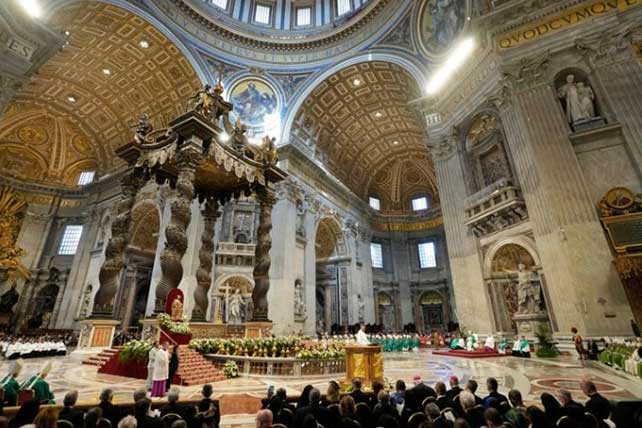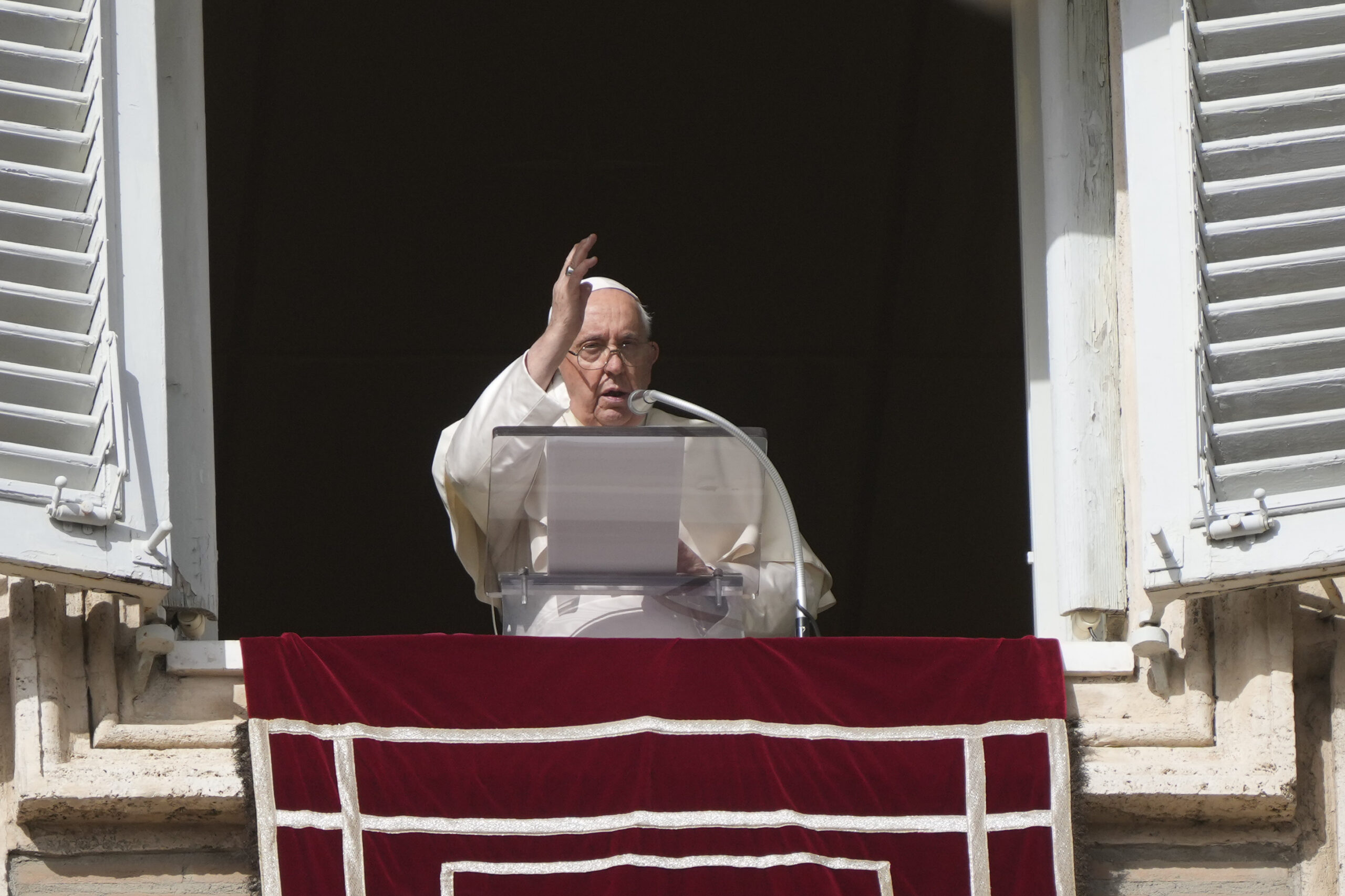VATICAN CITY (RNS) — After a massive consultation of Catholics around the world and a Vatican summit to discuss the future of the church, Pope Francis has directed theologians to tread new paths, shift paradigms and embrace synodality.
In a decree issued Nov. 1, Pope Francis challenged the International Pontifical Theological Commission — the body tasked with advising the pope and the Vatican on questions concerning doctrine — to embrace an evolving theology that cannot be limited to “abstractly rehashing formulas and patterns from the past.”
“A synodal, missional and ‘outgoing’ church can only correspond to an ‘outgoing’ theology,” Francis wrote in the decree, also known as a motu proprio. “Theological reflections are hence called to a turning point, a paradigm shift, ‘a brave cultural revolution,’” the pope added, emphasizing such a theology must meet people in the concrete reality of their lives, culture and environment.
RELATED: Pope Francis Mobilizing Vatican Diplomats To Quell a World War He Says Has Begun
According to the theologian Leonardo Paris, who teaches philosophy at the Romano Guardini Institute of Religious Sciences, the new papal bull is asking theologians to help realize Francis’ vision for a church that is open to today’s realities.
“In the document we can see that the pope is aware of the need for theological tools that will ensure that synodality, and new questions that arise, are properly addressed,” Paris told Religion News Service on Tuesday (Nov. 7).
Pope Francis recently concluded the so-called Synod on Synodality, a monthlong (Oct. 4-29) gathering of Catholic bishops and lay Catholic faithful at the Vatican to discuss some of the most hot-button issues in the church. The lively conversations that occurred touched on LGBTQ inclusion, female ordination and the possibility of married priesthood, as laid out in a synthesis document published Oct. 28.
On many issues the synthesis called for continued study by experts and theologians, taking into account other disciplines, including science and psychology. Specifically, on the issue of whether women can be ordained deacons — who can preach at Mass but not hear confessions or celebrate the Eucharist — the synod assembly called for more theological research ahead of their next meeting in the fall of 2024.
In an interview with the Italian news channel TG1, Francis asked for a theology that could recognize that “the power of the Woman Church and of women in the church is greater and more important than that of male ministers. Mary is more important than Peter, because the Church is woman.” This aspect cannot be reduced to a simple question of ordination, the pope stated.
“I think the pope is being sincere,” Paris said. “It’s a complicated issue and the pope wants to offer an answer that isn’t simply cultural or emotional, but also theological.”
Pope Francis’ approach to theology has evolved over the years. When he was an archbishop in Buenos Aires, Argentina, he criticized theologians for being more concerned with abstract ideas than the real lives of people. In his 10 years as pope, Francis has often remarked that the “pueblo fiel,” Spanish for the faithful, have an infallible intuition on Catholic teaching.
Pope Francis delivers a blessing during the Angelus noon prayer in St. Peter’s Square at the Vatican, Nov. 5, 2023. (AP Photo/Gregorio Borgia)
“To know what to believe one must look to the authority, but to know how to believe one must look to the faithful,” explained Massimo Borghesi, a philosopher at the University of Perugia and author of “The Mind of Pope Francis: Jorge Mario Bergoglio’s Intellectual Journey.”
According to Pope Francis, when authority becomes separated from the faith of the people it falls into clericalism, the belief that clergy hold a higher status within the church. “The church breathes through two lungs, the institution and charisms, the people and the authority,” Borghesi said, laying out the pope’s views.


